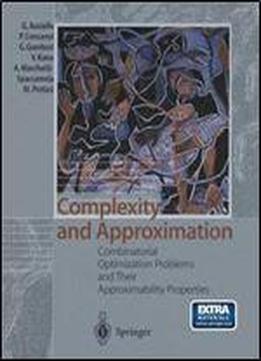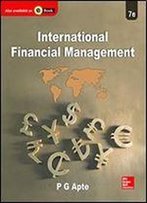
Complexity And Approximation: Combinatorial Optimization Problems And Their Approximability Properties
by Giorgio Ausiello /
2018 / English / PDF
28.3 MB Download
N COMPUTER applications we are used to live with approximation. Var I ious notions of approximation appear, in fact, in many circumstances. One notable example is the type of approximation that arises in numer ical analysis or in computational geometry from the fact that we cannot perform computations with arbitrary precision and we have to truncate the representation of real numbers. In other cases, we use to approximate com plex mathematical objects by simpler ones: for example, we sometimes represent non-linear functions by means of piecewise linear ones. The need to solve difficult optimization problems is another reason that forces us to deal with approximation. In particular, when a problem is computationally hard (i. e. , the only way we know to solve it is by making use of an algorithm that runs in exponential time), it may be practically unfeasible to try to compute the exact solution, because it might require months or years of machine time, even with the help of powerful parallel computers. In such cases, we may decide to restrict ourselves to compute a solution that, though not being an optimal one, nevertheless is close to the optimum and may be determined in polynomial time. We call this type of solution an approximate solution and the corresponding algorithm a polynomial-time approximation algorithm. Most combinatorial optimization problems of great practical relevance are, indeed, computationally intractable in the above sense. In formal terms, they are classified as Np-hard optimization problems.










